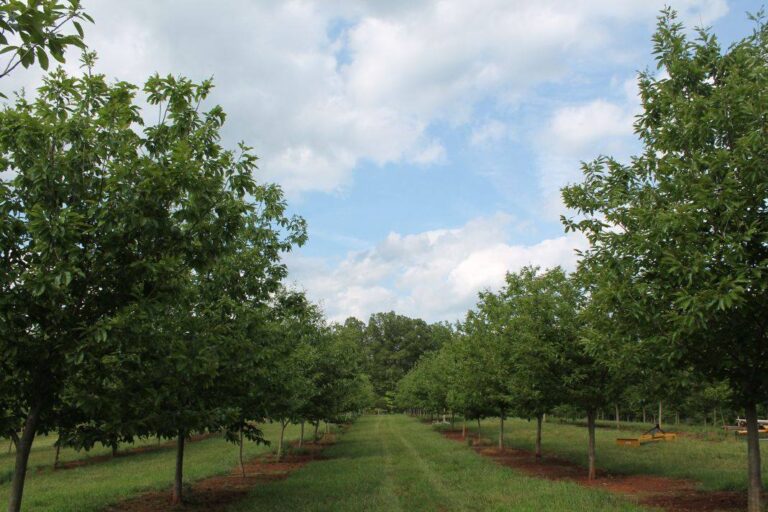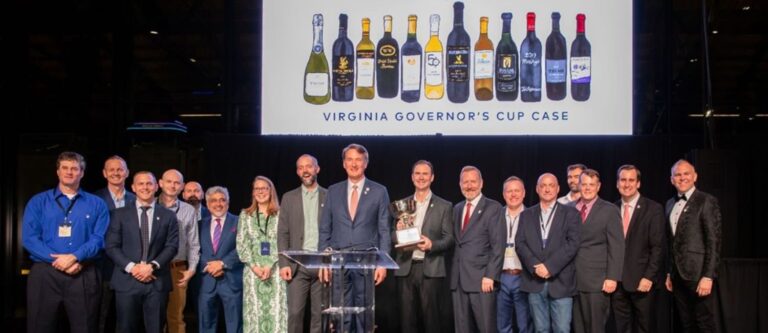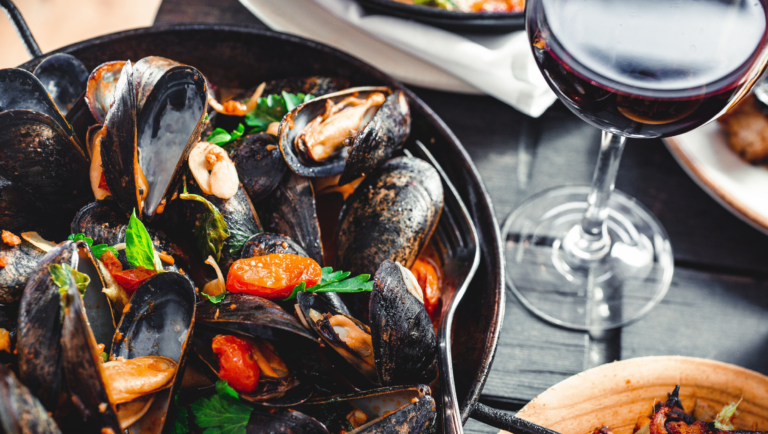GOOD FOOD MATTERS: A Local Foodie Manifesto
Here at Virginia Foodie, our approach to food is a very holistic one. Our mission is to celebrate our region and bring to you, dear readers and eaters, all the things that we love: Good Food, Good People, and Good Brands. Whether you call it local food, regional fare, or farm-to-table…it’s really a simple call to action–that we all should eat like we give a damn.
We believe that preserving local food traditions demonstrates integrity towards the earth, our loved ones, and our hardworking producers: the farmers, fishermen, farm workers, small businesses owners, bakers, chefs, artisans, bees, chickens, cows, soil, water–the entire community that contributes to putting food on our tables.
What started as a simple idea has grown to support an engaged and energetic community of foodie folks who are committed to all that’s good in the Commonwealth. To keep this love affair with food moving ever forward, we’ve put together a Foodie Manifesto to provide a simple action plan for our followers who want to be part of changing our food system.
Our Good Food Manifesto is made up these tenets:
-
Community
-
Quality
-
Agriculture
-
Integrity
Community
Our relationship with food is formed through our bonds with others. Food tells the story of who we are and helps define parts of our culture and heritage. The people we share our meals with and the events that mark those gatherings are why we buy, cook, and eat the foods that we do.
The personal connections that surround the foods we bring to the table are an extension of our community. When we are invited to someone’s home, we ask, “What can I bring?” because we want to connect by contributing both to the labor and flavor of the event. Similarly, supporting our community is imperative to sustain a healthy food market.
Supporting the small guy supports your community, too. A local community’s economic health depends on a steady circulation and recirculation of the same cash. A whopping 54% of local spending is recirculated locally. Purchasing from national chains puts 21% back into the local economy, and online spending contributes just 2%. (Source)
In short: spending local means the majority of your dollar is reinvested locally, but spending online or at a national chain ensures the profits leave your community never to return. What’s the impact? Many community services like education, first responders, libraries, infrastructure and more all depend upon the money in the local coffers.
When you travel, buying from local providers is a way to ensure that all you know and love about the region you are visiting will stay protected, and you can take a part of that community with you.
Action: Buy from local food producers to support ALL of your community. Commit to supporting small businesses, value the history, story, and heritage of your food.
Quality
Did you know that just ten companies control most of the world’s food supply? Nestlé, PepsiCo, Coca-Cola, Mars, Danone, Unilever, Mondelez, Associated British Foods, General Mills, and Kellogg’s are the corporate parents of most of the food brands that line grocery store and restaurant storage shelves. These large corporations do what they do best: streamline processes and economize sourcing for maximum production results and profit. (Source)
The advancement of manufacturing technology means that packaged foods can reach all corners of the globe. Unfortunately, as mass markets grew, expediency to market and shelf stability for shipping and storage often came at the expense of quality and flavor.
We believe that shoppers can swing food production in a new direction. Advancements in shelf-stable packaging mean that it is possible to manufacture a greater variety of food with quality ingredients and fewer additives and artificial flavors.
Quality ingredients just taste so much better and are better for you. Natural oils, simple sugars, and ingredients as close to their original state as possible are the foundation for delicious food. The key factor to local is that your food is “fresh”. Fresher produce means better and more nutritious, because fruits and vegetables lose their optimal nutritional value as soon as they are picked. As soon as produce is picked, vitamins such as C, E, A, and some B vitamins begin to deteriorate. Other factors such as the exposure to air, artificial lights, and temperature changes can also contribute to the decrease in nutritional value. which essentially means, the longer the food sits the more it loses its nutritional value.
Of course, we all have our foodie vices but, all great things should be consumed in moderation. We, as a society, should choose to move away from chemical additives and back to fewer, fresher ingredients for better nutrition. Choosing fresher products made in smaller batches with quality ingredients sends a signal that shoppers care about where food comes from.
Action: Choose food from local companies and from brands with clean labels who source from small providers and farms.
Agriculture
Farming is a vital part of our community, and our farmers deserve a living wage. Fresh ingredients need a thriving agricultural system and a healthy environment. Mass production has created a massive imbalance in our agricultural system. Today, just 11% of farms in the US are responsible for 74% of the farm output. The other 26% of US food production is spread between 1.82 million small farms. (Source)
The remaining 230,000 farms depend heavily on modern technology to manage extremely high yields from extraordinarily large tracts of land. Genetically modified seeds and their companion herbicides are the foundation for this mass-production farming. Small farms scramble to produce food at the lower costs that these factory farms have created in the market.
Most farmers in this country need another, off-farm, source of income. Small farmers depend on it; they can’t support themselves or their families from the income derived from their crops. Just under half of all small farmers see only about $10,000 in annual farming income.
Good food comes from good earth. While large-scale farming can increase crop yield, we are now seeing the impact that large-scale agriculture has on the environment: increased runoff and soil erosion can harm production over time. Many farmers are turning back to conservation practices that address ground cover and turn carbon back into the soil instead of into the atmosphere.
Crop diversity adds to food flavor. Breaking away from limited seed sources increases crop resilience and also lends a sense of what winemakers call “terroir, “ which is a term that explains how regional soil and climate influences the flavor of food grown in a certain area.
Action: Buying meat, dairy, and produce from farmers markets and CSAs supports farming in your region and gives you and your family better sources for nutrition.
Integrity
It’s been said many times by marketers and big brands that “the American consumer is changing” but we beg to differ. We are the American consumer, you and I, and our motivations are not changing. Our desire to nourish ourselves and our families, for great meals shared with our friends, and for memorable gatherings are still the same.
What is changing is how we find, select, and purchase food, which then leads to changes in the way food is sourced and sold. We are living in an age in which we are more aware of the impact of the food choices we make, and there are many more ways to get good food than before. Today we choose to support food that is purposefully and steadily ethically produced.
A good brand puts integrity and stewardship before profits, is deeply connected to their food source, and always considers ethical and sustainable practices. Being successful and prominent does not discount a brand from being a brand with integrity. A brand must do good for others in exchange for the support of quality consumers.
Action: Put your dollars behind good brands to help them thrive. Ask your stores to carry more local brands. As demand grows for regionally sourced products the affordability and access will become easier for all.
In short, we are asking you to strive to be a more educated consumer. Know where your food is coming from and use your purchasing power to support local businesses, improve the quality of all our food, empower farmers, and hold brands accountable for the choices they make.
Join Us:
I am committed to supporting Good Food, Good People, and Good Brands.
-
Choose quality over quantity
-
Support good farmers that deserve a living wage
-
Stay connected to my community
-
Help ensure everyone has access to good food
-
Educate myself and others about my food sourcing
-
Commit to supporting brands with integrity
We at Virginia Foodie commit to continuing the work of advocating for local food. Join with us as we work to build a community around the common goal of good local food. We look forward to having you on this journey to a better food system.
Stay empowered and informed about your local food scene – sign up for our email.










